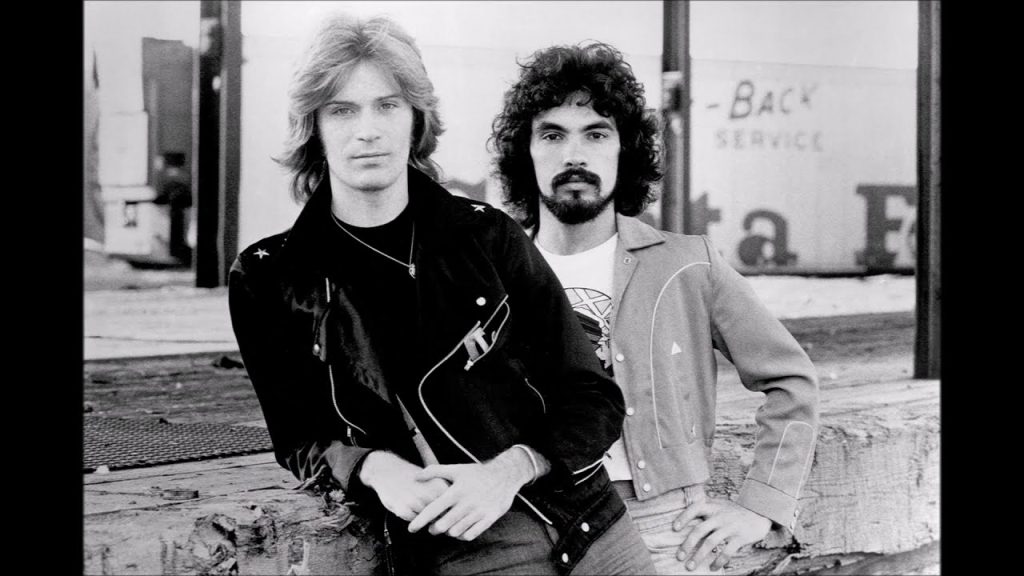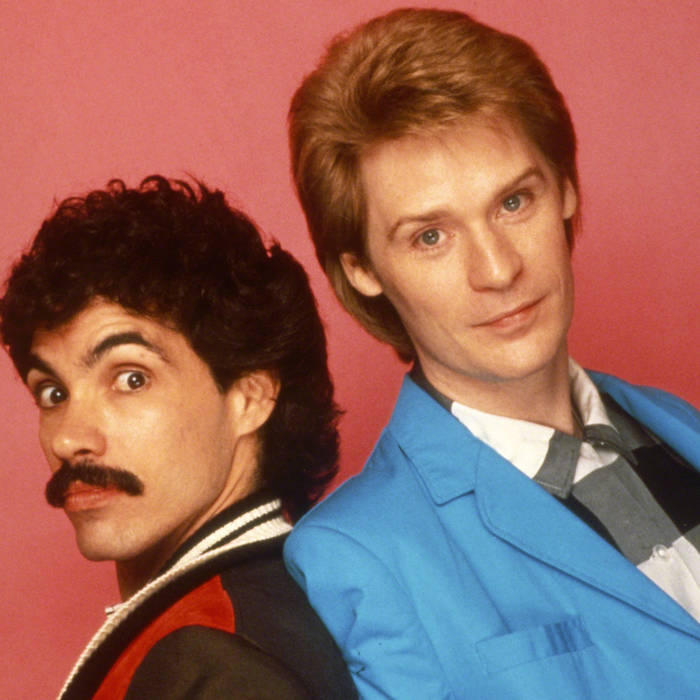
A Tale of Caution Wrapped in a Catchy Melody
In the vibrant tapestry of 1980s pop music, where synthesizers reigned supreme and big hair was all the rage, there emerges a track that has etched itself indelibly into the collective memory of a generation: “Maneater” by Hall & Oates. Released as a single in 1982, this iconic track quickly captured the public’s imagination, climbing to the top of the Billboard Hot 100 chart and securing its place as one of the duo’s most successful hits. It’s a song that resonates with a cautionary tale, wrapped in an irresistibly catchy melody that speaks to both youthful exuberance and seasoned wisdom.
The story behind “Maneater” is as intriguing as its seductive bassline. Daryl Hall, one half of the legendary duo, has explained that the song was inspired not by a femme fatale per se, but rather by the city of New York itself during the early ’80s—a metropolis teeming with both opportunity and danger. It was a time when Wall Street was booming, but so were crime rates and urban decay. This duality is reflected in the lyrics, which caution against being consumed by the glittering allure of something—or someone—that ultimately may not have your best interests at heart.
Musically, “Maneater” exemplifies Hall & Oates‘s ability to blend genres seamlessly, combining rock, pop, and soul elements into a sound that was distinctly their own. The song’s opening notes immediately draw listeners in with a sense of foreboding, setting the stage for Hall’s smooth yet urgent vocals. The chorus is infectious, ensuring that once heard, it remains with you long after the record stops spinning. This was no accident; Hall & Oates were meticulous craftsmen, understanding well how to write hooks that could capture both radio play and public affection.
Lyrically, “Maneater” serves as both a reflection and a warning. For older listeners who may have lived through those tumultuous times, it evokes memories of navigating an ever-changing world where appearances could be deceiving. There’s an underlying wisdom in its message—a reminder to remain vigilant and discerning amidst life’s many temptations. For younger audiences discovering it anew, there’s a timelessness to its themes that transcends its original era.
The song’s success is also attributed to its production quality. Produced by Daryl Hall, John Oates, and Neil Kernon, “Maneater” benefits from a polished sound that was emblematic of early ’80s production techniques—crisp percussion, layered instrumentation, and a dynamic mix that gives each element space to shine. The saxophone solo by Charles DeChant is particularly noteworthy, adding a jazzy flair that elevates the track beyond standard pop fare.
In retrospect, “Maneater” stands as more than just a hit single; it is a cultural artifact from a bygone era. It encapsulates the essence of Hall & Oates—two musicians at their creative peak who understood how to speak to their audience with both charm and insight. Whether you’re revisiting this classic or encountering it for the first time, “Maneater” offers a listening experience rich with nostalgia and meaning—an enduring testament to the power of music to both entertain and enlighten.
